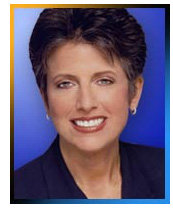Speaking up about Communication Shutdown
by Beth Finke
If you read Patricia Wright’s blog post last Friday, you know that today, November 1, is Communications Shutdown day:
Communication Shutdown is asking us all to get by without Facebook or Twitter for just that one day. To be part of the shutdown, you make a $5 donation to receive a Charity App (CHAPP), and the CHAPP tells your Facebook friends and Twitter followers that you are volunteering to shutdown.
Facebook and Twitter really are the 21st century communication tools of choice for many, and this one-day shutdown could give those of us who are not on the autism spectrum a glimpse into the world of autism and how challenging it can be to have limited communication skills.
Turns out that some people with autism aren’t crazy about today’s Communication Shutdown. In a blog post on No Stereotypes Here, blogger Corina Becker says:
While the attempt to understand our difficulties is admirable, I don’t think that a non-autistic person can fully understand an autistic reality, even with some intense simulations.
She goes on to suggest that people with autism use today’s shutdown as an opportunity to speak up:
I would like the day to acknowledge our difficulties, yes, but also share our strengths, our passions, our interests, our “obsessions” … And so, for the intent of raising Autism awareness and battling negative stereotypes about Autism, I call that November 1st be Autistics Speaking Day.
As for me, I think I’ll participate in both. I’m going to avoid Facebook and Twitter today, and then spend that time I usually devote to social media listening to — and learning from — the people in my life who have autism.







 Once a semester, a Disability Culture class from DePaul University takes a field trip to my apartment. The idea is for students to get a glimpse, so to speak, of what it’s like to be blind and live in a big city.
Once a semester, a Disability Culture class from DePaul University takes a field trip to my apartment. The idea is for students to get a glimpse, so to speak, of what it’s like to be blind and live in a big city. The
The  It’s my pleasure to introduce Pamela Langone as a guest blogger today. Pam is the Director of Communications at
It’s my pleasure to introduce Pamela Langone as a guest blogger today. Pam is the Director of Communications at